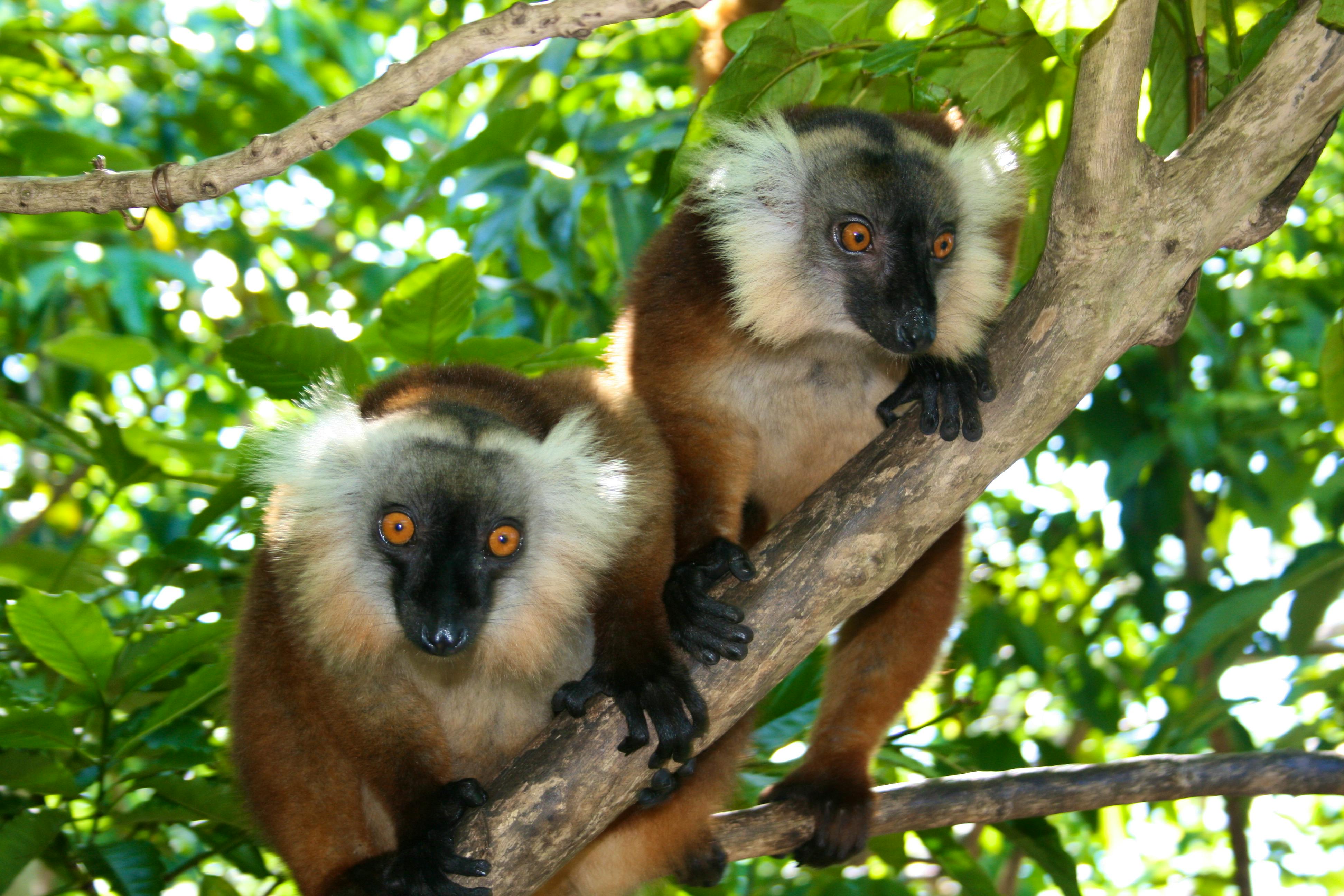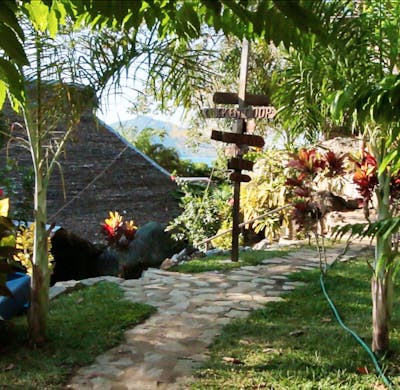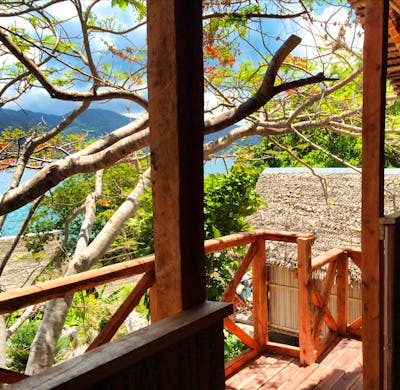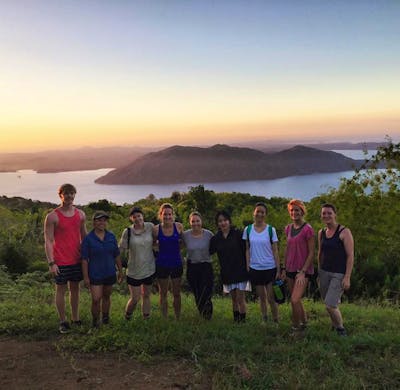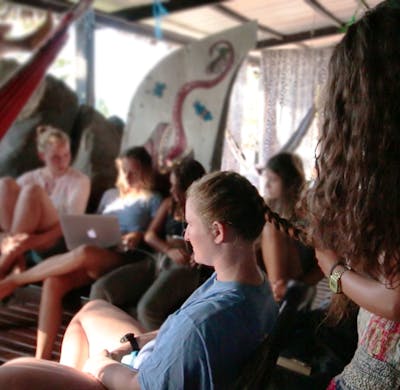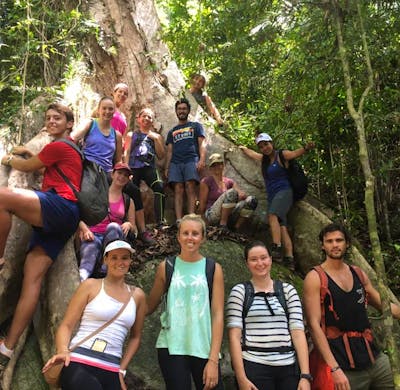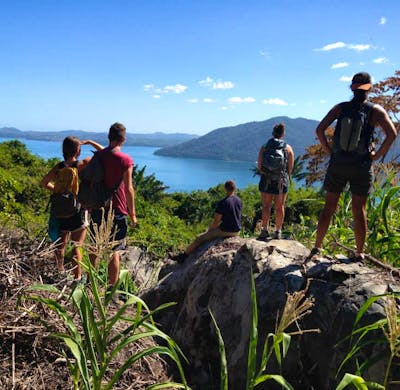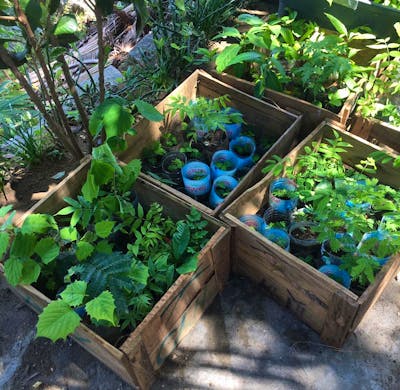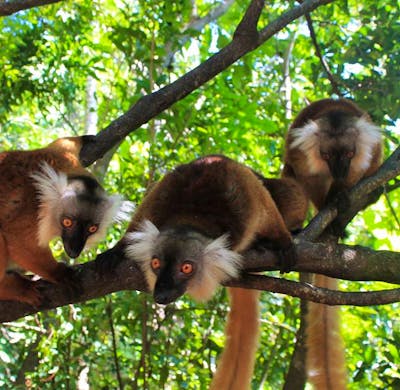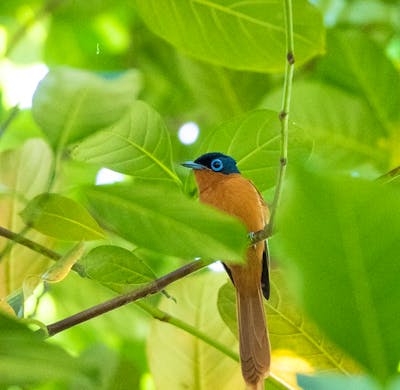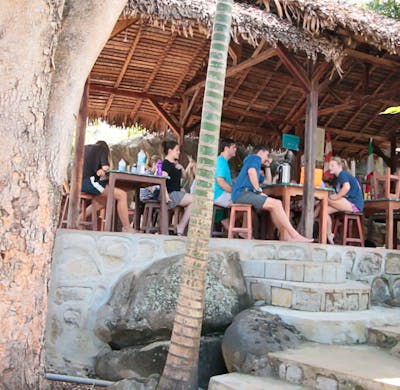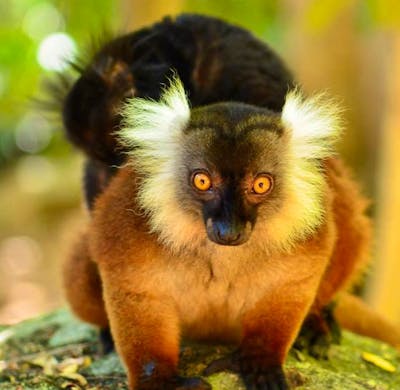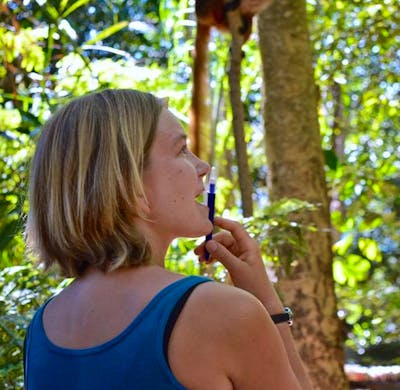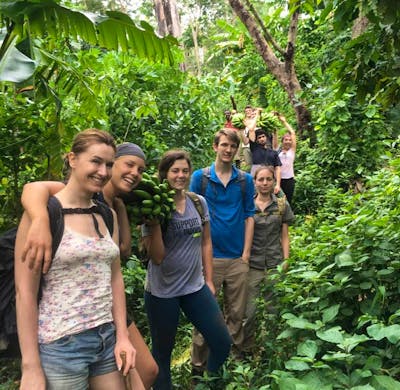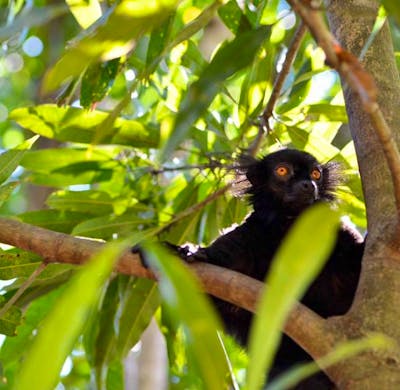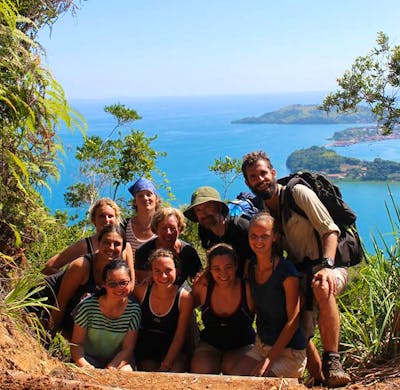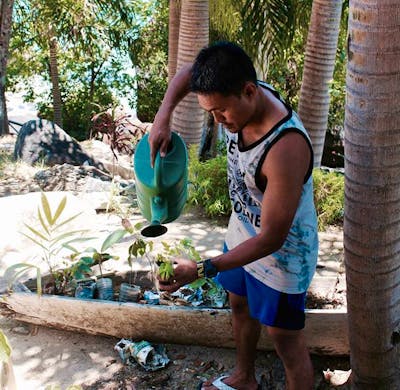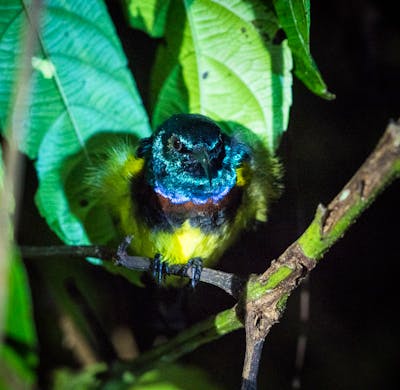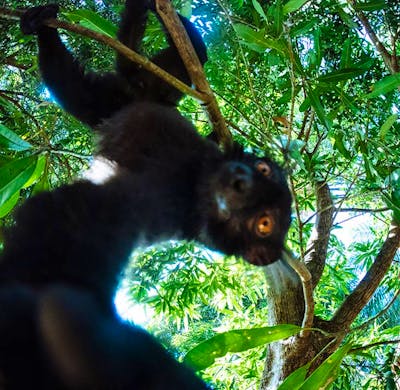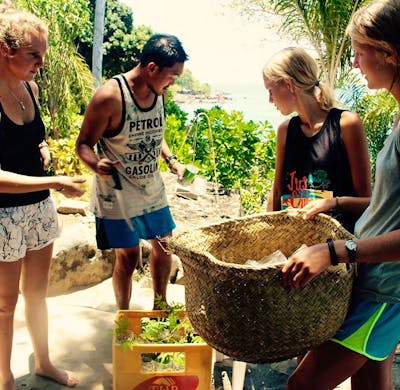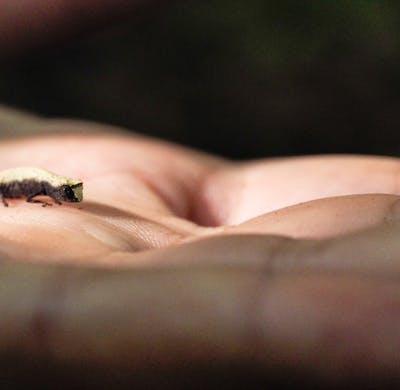Forest Conservation Program:
Madagascar Research and Conservation Institute's is a unique opportunity to explore Madagascar's remarkable ecosystem and encounter its iconic wildlife.
The MRCI Forest Conservation Program on Nosy Komba, known as 'Lemur Island,' focuses on preserving the threatened Sambirano forests in Northwest Madagascar through active restoration and sustainable practices.
Our program includes mangrove planting reforestation, alien plant removal, seed collection, composting, nursery activities, and sapling planting. Please note that some activities, especially mangrove planting, are seasonal and may not be available all year round.
MRCI works in collaboration with the National Parks Department of Madagascar and volunteers assist in assessing lemur and other species populations in the forests on Nosy Komba and at the renowned Lokobe Forest Reserve on Nosy Be. Data collected is provided to the National Parks.
Accommodation
Volunteers stay at MRCI's Turtle Cove camp on Nosy Komba, an island with no roads and challenging forest paths, thus moderate physical fitness is required.
Every alternate week, volunteers explore the forest on Nosy Komba through various walks and overnight campouts at either the Church or Baobab. Accommodation remains very basic and the cost is included in the program fee, benefiting the local community.
Every other week, volunteers conduct overnight guided walks in Lokobe Reserve. Accommodation is basic, with tented beach camps on the forest edge. Meals are arranged on-site through a local restaurant to support the community. Volunteers can upgrade at an additional cost to private tents with mattresses or private bungalows, subject to availability, arranged with the local community leader on-site.
Program Fees
Fees cover staff, transportation, camp maintenance, equipment, meals, and other expenses. In cases where surplus funds are available from the teaching program, these funds are directed towards the MRCI community program to construct and renovate local schools and clinics.
Additional Activities
For adventurous volunteers, we offer additional optional off-program excursions to the Ankarana Forest Reserve near Diego Suarez. Costs vary based on the number of participants and include transportation, guides, and accommodation. Ensure safety and standards when considering other operators offering lower prices.
Age: Our volunteers range in age from 18 to retirees and everyone in between, though most are in their early to mid-twenties.
Number of Volunteers: MRCI’s research centre at Turtle Cove can accommodate up to 54 volunteers at a time across all programs. There are usually between 10 and 20 volunteers participating in the Forest Conservation program at any given time.
Languages Spoken: All program staff and volunteers must be able to speak, write and understand English. Our program staff and volunteers come from all over the world and speak a myriad of other languages in additional to English. Locally, our operations staff and the people of Madagascar speak Malagasy and some French. Volunteers have the chance to attend free Malagasy lessons offered on camp and learn more about the language and culture in this beautiful country.
Essential info: Volunteers are expected to have their own health insurance. Vaccinations are not typically required to enter Madagascar, however this may vary depending on your travel path. We recommend consulting a travel doctor about vaccinations and medications. Recommended vaccinations for Madagascar include: yellow fever, tetanus, Hepatitis A, Hepatitis B, typhoid, and rabies.
In addition, we recommend carrying preventative agents with you including sun screen, after sun lotion, mosquito repellent, re-hydration supplements, anti-malarial medications, and anything else recommended by your doctor. There is access to good, fairly priced medical care here in country if needed. Due to the hot, humid climate, it is incredibly important to drink enough water. We have filtered drinking water available on camp; just be sure to bring a good reusable bottle.
What Is included in the fee: Forest volunteers receive training on species identification, conducting field surveys, methodology, equipment set up and data collation.
Volunteers also receive:
- Sleeping accommodations for the duration of their volunteer time
- Three meals per day, seven days per week on camp
- Supervision and training by staff
- Overnight hike to a church village high up near the peak of Nosy Komba
Insurance: Volunteers are expected to purchase their own health
insurance.
Not Included: - Flights
- Visa costs
- Personal items
Currency: In Madagascar the official currency is the Malagasy Ariary
(MGA), which can only be exchanged in Madagascar. There are a number VISA ATMs
located in Hellville which volunteers can draw cash from. We do however advise
that you bring some Dollars and Euro’s along with you to purchase the tourist visa upon arrival.
Passport and Visa: All visitors require visas and a one to three month single
entry visa may be obtained on arrival at the airport. We do recommend you check
with the Consulate General as visa requirements can change at any time. A
passport valid for 6 months after date of return is required. Please ensure you
have at least two blank pages available in your passport before commencement of
travel.
VISAS 30-Day visa: 35 Euros / 37 USD 60-day visa: 40 Euros / 45 USD
Most nationalities can get a visa upon arrival at the airport in Madagascar or the Madagascar embassy in the country of departure. You can purchase either a 30 or 60-day visa. There are no ATMs or credit card facilities at the airports so you will need to bring enough cash to pay for your visa when you land. The visa costs are as follows: * Visas may be extended to 90 days for $75 once in-country Due to its structure, this program is classified as a tourist trip. Volunteers participate on a project for three months or less, work an average of three to five hours daily (not full-time), and do not receive any pay or free accommodation/meals in compensation for work. That qualifies these types of trips as “tourist” trips, therefore, we recommend you select “tourism” as your reason for travel on your visa. Other visa types may be available, however, they are often unnecessary, expensive and time-consuming.
What to bring along:
- Personal Items - Essential Items for all Volunteers
- Lightweight
waterproof rain jacket
- T-shirts/vests
- Light long-sleeved sweatshirt/ jumper/ fleece
- Trousers (suitable for going into the forest)
- Shorts
- Underwear
- Swimming costume/bikini/board shorts
- Sunhat
- Sunglasses
- Walking boots or good trainers /sneakers
- Flip-flops
- Day pack (waterproof)
- Dry bag/ziplock bags that will keep items dry
- Lightweight single person mosquito net
- Cotton sleeping bag liner and/or single sheet & pillow
case.
- Sleeping bag if coming in the cooler months (June-August)
- Towel or sarong
- Toiletries (soap, shampoo, razor, tampons, toothpaste,
toothbrush)
- Sunscreen (water-resistant, preferably biodegradable)
- Insect repellent
- Head torch (with rechargeable batteries)
- Photocopy of passport, travel insurance details, dive
qualifications (if relevant) and other important travel documents
- Debit card/credit card
- Spending money
- Solar Panel Charger
- Personal Medical Kit
(example items: Anti-malarial tablets; Paracetamol / Ibuprofen; Antihistamine pills / cream; Rehydration tablets / sachets; Immodium; Multivitamins; Antiseptic cream or spray; Motion sickness pills if prone; Bandage / Plasters; Dressings / Micropore tape; After sun lotion or gel;
Optional Items for
all Volunteers:- Battery pack (to use in conjunction with your solar panel)
- Mobile phone (you can buy a local SIM card for around US$10)
- A padlock to secure personal items
- Laptop/iPad/iPhone
- Camera (waterproof)
- Books
- Water bottle
- Sarong
- A nice set of clothes if you want to go out for dinner or
dancing
- Rash vest
- Talcum powder
- Treats/food difficult to get in Madagascar
- Travel guide (many volunteers find Lonely Planet to be very
helpful for preparation and once they are in Madagascar)
HEALTH CONDITIONS We kindly request that all volunteers inform our volunteer coordinator and senior staff of any health conditions, mental illnesses, disabilities, or other relevant information that may affect their participation in camp activities. Please be assured that any such information will be kept strictly confidential. It is important for us to have this information to ensure that we provide fair treatment and ensure your safety during your stay on camp.
INTERNET Wi-Fi is not available on camp, however, there is Wi-Fi access in the neighbouring village of Ampang, about a half-hour hike from camp. Volunteers can purchase a local sim card in Hellville along with 2GB of data for $5.
MOBILE PHONES Volunteers can bring their mobile phones and purchase a local SIM card and credit for calling and data upon arrival. If their phone’s SIM is locked, they have the option of purchasing a local phone. This is great for keeping in touch with local staff, other volunteers and loved ones at home. Once you have purchased a SIM card and data package, you can access the internet via cell service in most places on Nosy Be and Nosy Komba, including camp. With enough credit loaded on, you can make both domestic and international calls. The country code for calling Madagascar is +261.
ELECTRICAL APPLIANCES The most common type of wall plug in Madagascar is the typical European rounded twoprong plug (Type C) and the rounded two-prong plug with a hole for the male grounding pin (Type E). The voltage is 20V and the frequency is 50Hz.
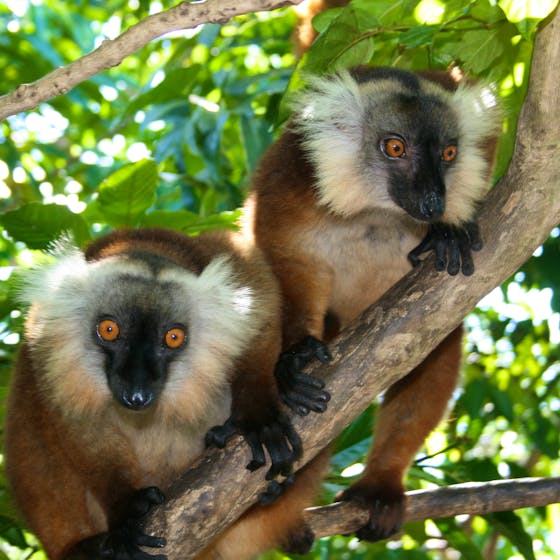
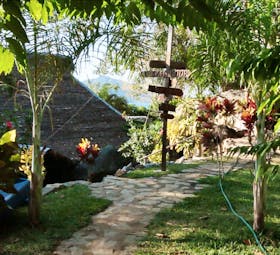
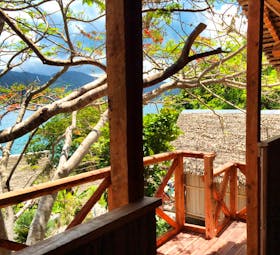
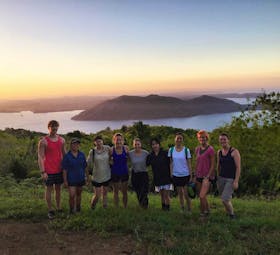
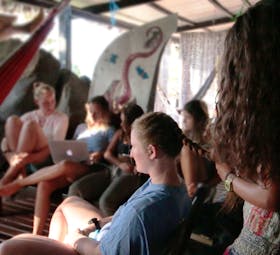
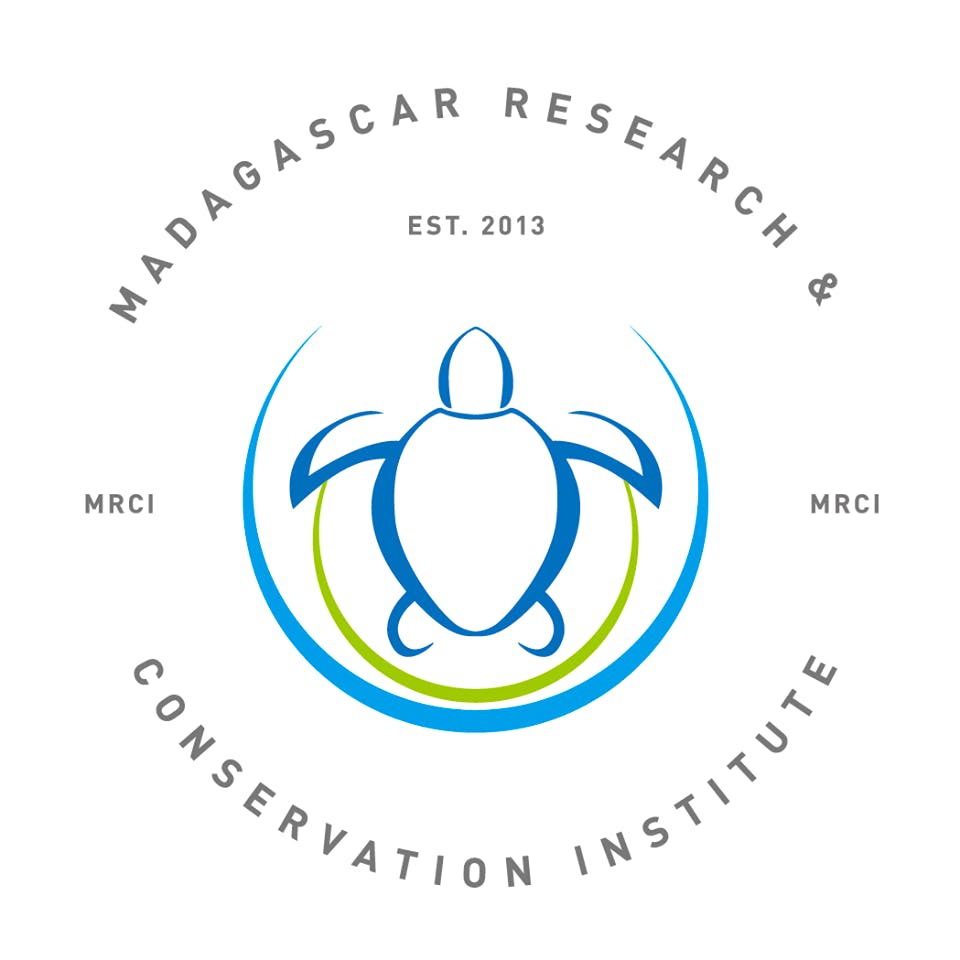
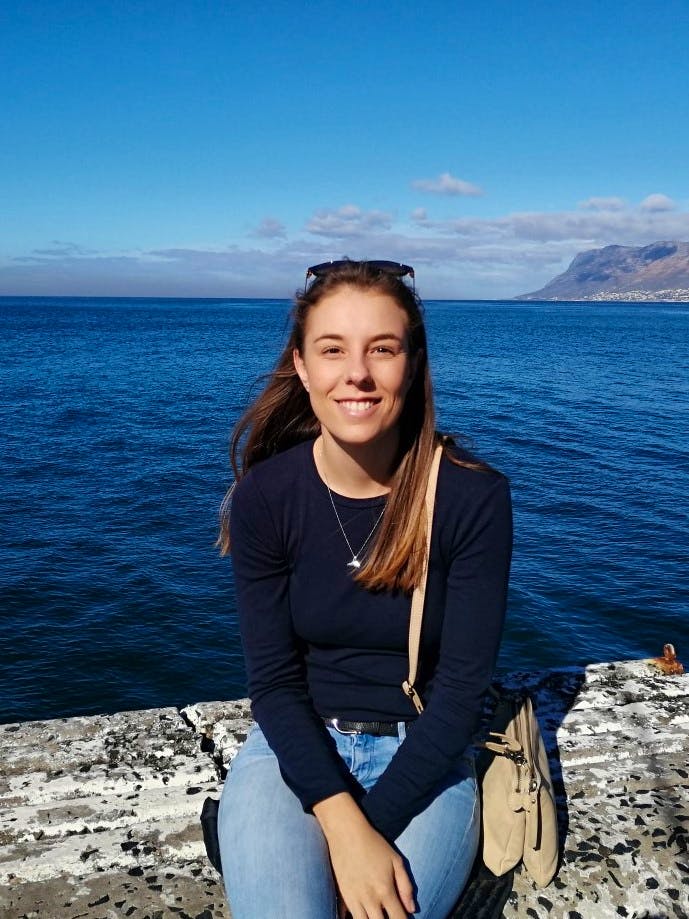
 4.6
4.6

